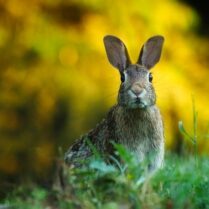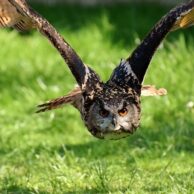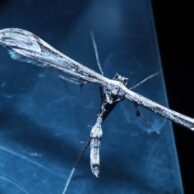
Gilbert White (1720 – 1793) was a pioneering naturalist from Hampshire, UK, best known for his work The Natural History and Antiquities of Selborne, which has been in print continuously since the day it was published in 1789. White is recognised as the first ecologist, and his method of recording his discoveries using living animals was unique in his time.
After his studies, Gilbert White was ordained in 1749, and found inspiration in his Selborne garden where he grew traditional and experimental plants. He was the first to grow potatoes in Hampshire.
The Natural History and Antiquities of Selborne was a compilation of his letters to Thomas Pennant and Daines Barrington, and includes his observations of birds, animals, plants and insects, sometimes written as poetry.
It is Gilbert White’s contribution to natural history that has shaped our respect for the natural world.
The Naturalist’s Summer Evening Walk
To Thomas Pennant, Esquire.
soundeffectbbc.co.uk©copyright2020BBC



When day declining sheds a milder gleam,
What time the may-fly haunts the pool or stream;
When the still owl skims round the grassy mead,
What time the timorous hare limps forth to feed;
Then be the time to steal adown the vale,
And listen to the vagrant cuckoo’s tale;
To hear the clamorous curlew call his mate,
Or the soft quail his tender pain relate;
To see the swallow sweep the dark’ning plain
Belated, to support her infant train;
To mark the swift in rapid giddy ring
Dash round the steeple, unsubdu’d of wing:
Amusive birds! — say where your hid retreat
When the frost rages and the tempests beat;
Whence your return, by such nice instinct led,
When spring, soft season, lifts her bloomy head?
Such baffled searches mock man’s prying pride,
The God of Nature is your secret guide!
While deep’ning shades obscure the face of day
To yonder bench leaf-shelter’d let us stray,
‘Till blended objects fail the swimming sight,
And all the fading landscape sinks in night;
To hear the drowsy dorr come brushing by
With buzzing wing, or the shrill cricket cry;
To see the feeding bat glance through the wood;
To catch the distant falling of the flood;
While o’er the cliff th’awakened churn-owl hung
Through the still gloom protracts his chattering song;”
While high in air, and pois’d upon his wings,
Unseen, the soft, enamour’d woodlark sings:
These, Nature’s works, the curious mind employ,
Inspire a soothing melancholy joy:
As fancy warms, a pleasing kind of pain
Steals o’er the cheek, and thrills the creeping vein!
Each rural sight, each sound, each smell, combine;
The tinkling sheep-bell, or the breath of kine;
The new-mown hay that scents the swelling breeze,
Or cottage-chimney smoking through the trees.
The chilling night-dews fall: away, retire;
For see, the glow-worm lights her amorous fire!
Thus, ere night’s veil had half obscur’d the sky,
Th’impatient damsel hung her lamp on high:
True to the signal, by love’s meteor led,
Leander hasten’d to his Hero’s bed.
Gilbert White